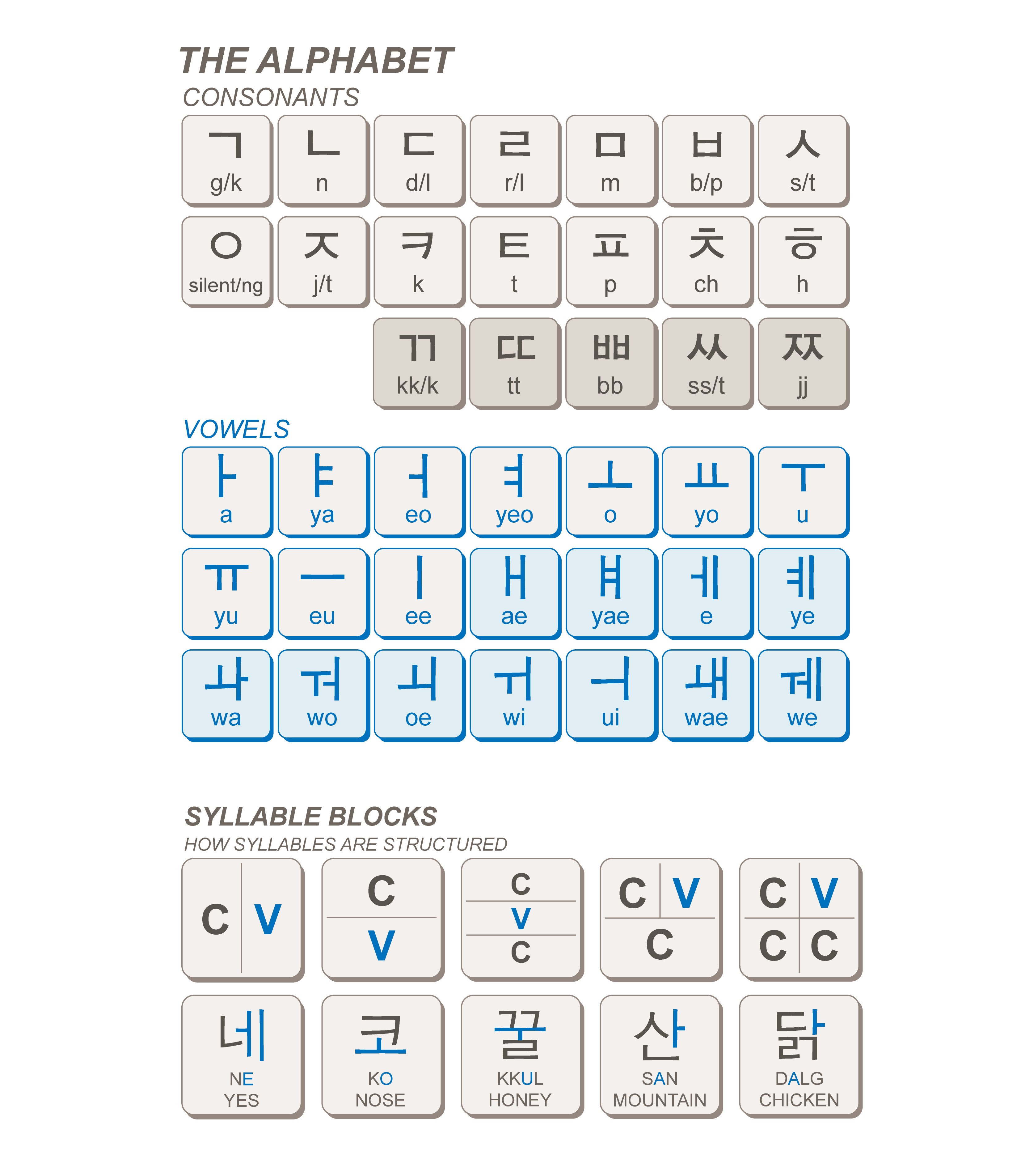 About Hangul
About Hangul
Koreans consider their language as one of their most distinctive traits. Hangul, or the Korean alphabet, is a unique writing system and is thought to be one of the most efficient alphabets in the world. During King Sejong's era in the mid-15th century, the Korean alphabet system was based on Chinese characters and was only read fluently by only privileged male aristocrats. King Sejong thus developed Hangul so all Korean people, of any class, could learn to read and write. Celebrated on October 9 since 1970, Hangul Day or Hangul Proclamation Day is a national Korean holiday celebrating the creation of the Korean alphabet.
Learning Hangul
During your tour in Korea, you'll have ample opportunity to study the Korean language. Many installations have free on-duty or off-duty language classes and there are also plenty of resources available online such as Youtube or Google.
Communication
Although English is taught in Korean schools as a first foreign language, it helps to speak slowly to increase your chances of being understood. If you still have difficulties getting your message across, write it down using short words. If this fails, simply show the phrases written in one of the many available phrase books or translation apps.
Download the Korean alphabet cheatsheet
The following Korean phrases may assist you during your visit to Korea:
| English |
Korean |
| Hello |
Ahn-nyong ha-seh-yo |
| I'm glad to meet you. |
Mahn-nah-so bahn-gah-wo-yo. |
| Goodbye (by host) |
Ahn-nyong-hee kah-seh-yo. |
| Goodbye (by guest) |
Ahn-nyong-hee kay-seh-yo. |
| May I have your name? |
Ee-ru-mee moo-ot-shim-nee-ka? |
| How much does it cost? |
Ol-mah eem-nee-ka? |
| I'll take this. |
Ego ju-seh-yo. |
| My name is ______. |
Je-ee-ru-mun _____ im-nee-da. |
| Do you speak English? |
Young-oh hahm-nee-ka? |
| Please take me to the nearest U.S. military installation. |
Kah-kah-woon mee-koon boo-dae-ro kahp-she-dah. |
| How much is the fare? |
Ol-mah eem-nee-ka? |
| Stop here. |
Yo-gee se-wo ju-seh-yo. |